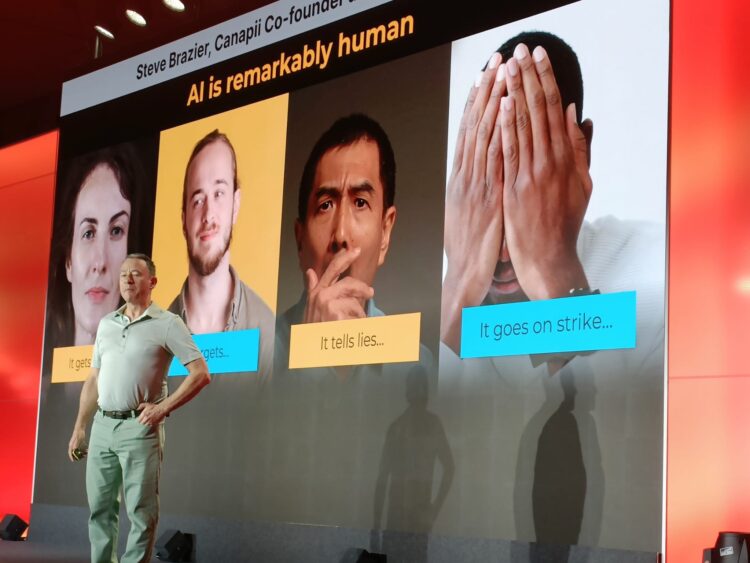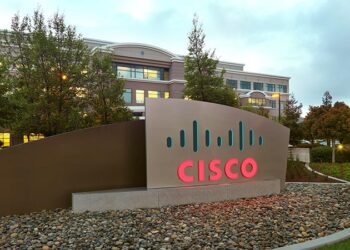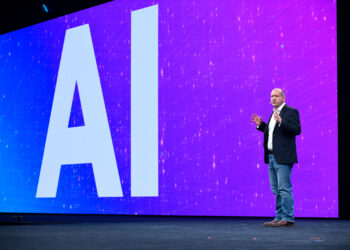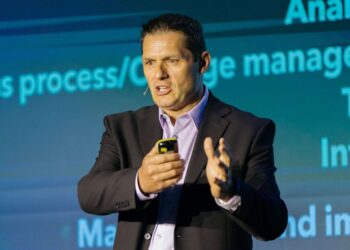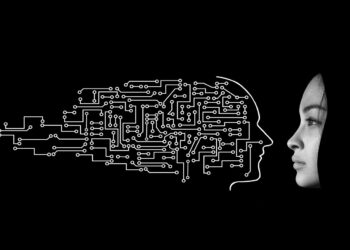“Can you code?” Steve Brazier asked a roomful of channel partner leaders as he kicked off this morning’s keynotes at Omdia’s Canalys Forums EMEA.
The Informa Fellow – back once again to give the opening address at the Barcelona event – acknowledged that he’d ignored warnings to give AI a wide berth this time around.
“As I was preparing for this conference, I thought, ‘I better spend a weekend with a channel partner’. The channel partner asked what I was going to talk about in Barcelona, and I said, ‘AI’. He said, ‘really; can’t you talk about something else’?
“I’ve ignored the advice.
“I think it’s absolutely imperative that you focus on AI.”
“You now have to become a software company“
Brazier showed a slide illustrating what has happened to publicly quoted channel partners’ share prices since the launch of ChatGPT.
Although resellers have on average failed to grow their market caps, the share price performance of the big SIs has fallen “way behind” the S&P 500 average, he pointed out.
With a recent MIT study suggesting that 95% of GenAI pilots haven’t worked, Brazier said instances where end users have sought advice on their AI strategy from the big SIs are “failing”.
“You now have to become a software company,” Brazier told the audience of VARs, MSPs, distributors and services outfits.
“The way you become a software company is to think big but start small.”
Brazier went further by suggesting the onus is on partner CEOs themselves to become coders.
“Can you code, and if not, why haven’t you learned?” he asked.
“Are you still relevant to lead the organisation? And if you can’t code yourself, the most important person in your company – and person you have put next to you at the top seat of the company – [should] know how to code and develop.”
“AI is going on strike”
Unlike last year’s bleak keynote in which Brazier said the hyperscalers alone were profiting from the AI boom, this year the Canalys founder said the AI market is now “fragmenting”.
“The hyperscalers have actually put up the white flag and said, ‘we can’t do this alone’,” he said, referring to the rise of so-called “neo clouds”.
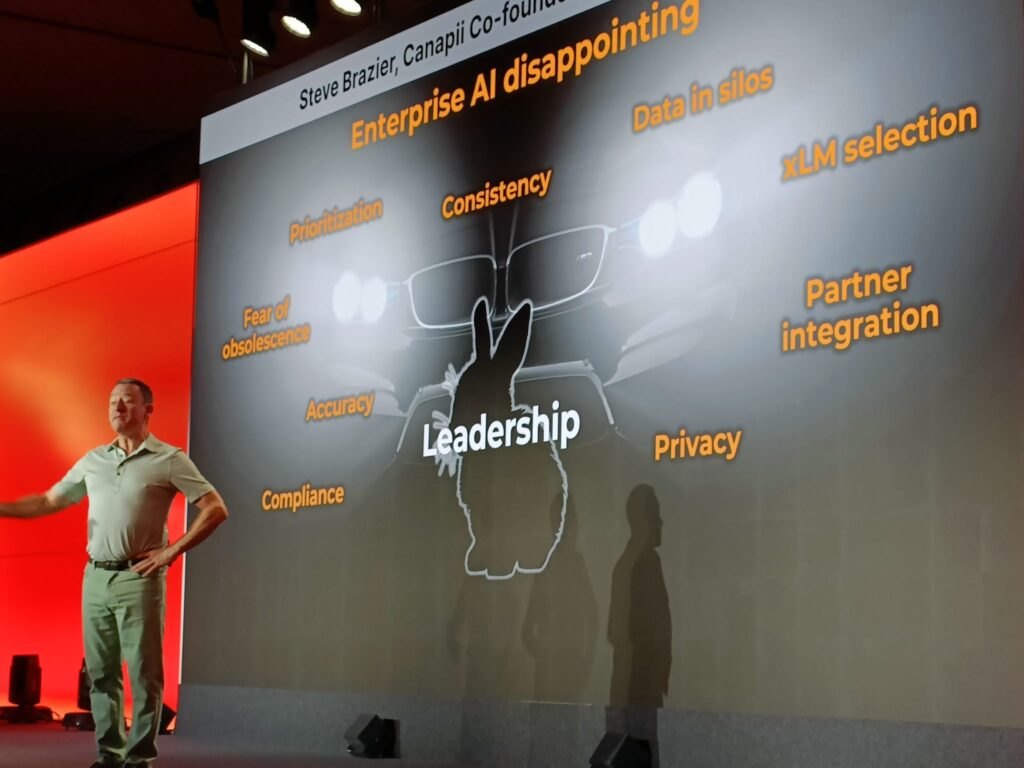
Brazier cast doubt over the level of investment needed to build this new AI infrastructure, however.
“When public cloud spending took off, I said there wasn’t enough capital in the world to fund what they needed to fund. I was wrong, as many of you remember. I’m very reluctant to repeat that mistake, but this is a huge gamble of enormous size,” he said.
Brazier also claimed AI is being held back by the growing cost of LLMs.
“AI can hallucinate from time to time, but most interestingly AI also goes on strike,” he said.
“It says ‘sorry, you’ve run out of tokens; come back tomorrow or upgrade your account’.
“Why is it going on strike? Because the AI business model is nothing like SaaS. The cost of adding new customers to SaaS was close to zero. The cost of adding new customers to AI is extraordinarily high and the most expensive users are the ones who use AI the most.”
Doug Woodburn is editor of IT Channel Oxygen


